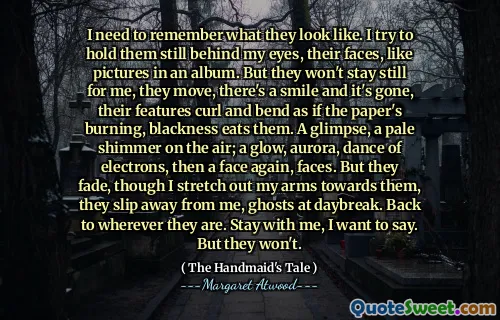...women on their own, making up their minds. They wore blouses with buttons down the front that suggested the possibilities of the word undone. These women could be undone; or not. They seemed to be able to choose. We seemed to be able to choose, then. We were a society of dying, said Aunt Lydia, of too much choice.
In "The Handmaid's Tale," Margaret Atwood explores the theme of women's autonomy and the complexity of choice. The description of women wearing blouses with buttons suggests both vulnerability and freedom. These women embody the idea of being able to be "undone," signifying the power they hold over their own lives and decisions. This duality emphasizes their ability to choose their paths, reflecting a sense of empowerment amid societal restraints.
Aunt Lydia's remark about society being "a society of dying, of too much choice" introduces a critique of the overwhelming nature of freedom. The paradox of choice can lead to paralysis or dissatisfaction, highlighting the tension between autonomy and the burdens that come with it. Through this narrative, Atwood suggests that while choice is essential, it can also be a source of distress in a world that grapples with the implications of freedom and control.






